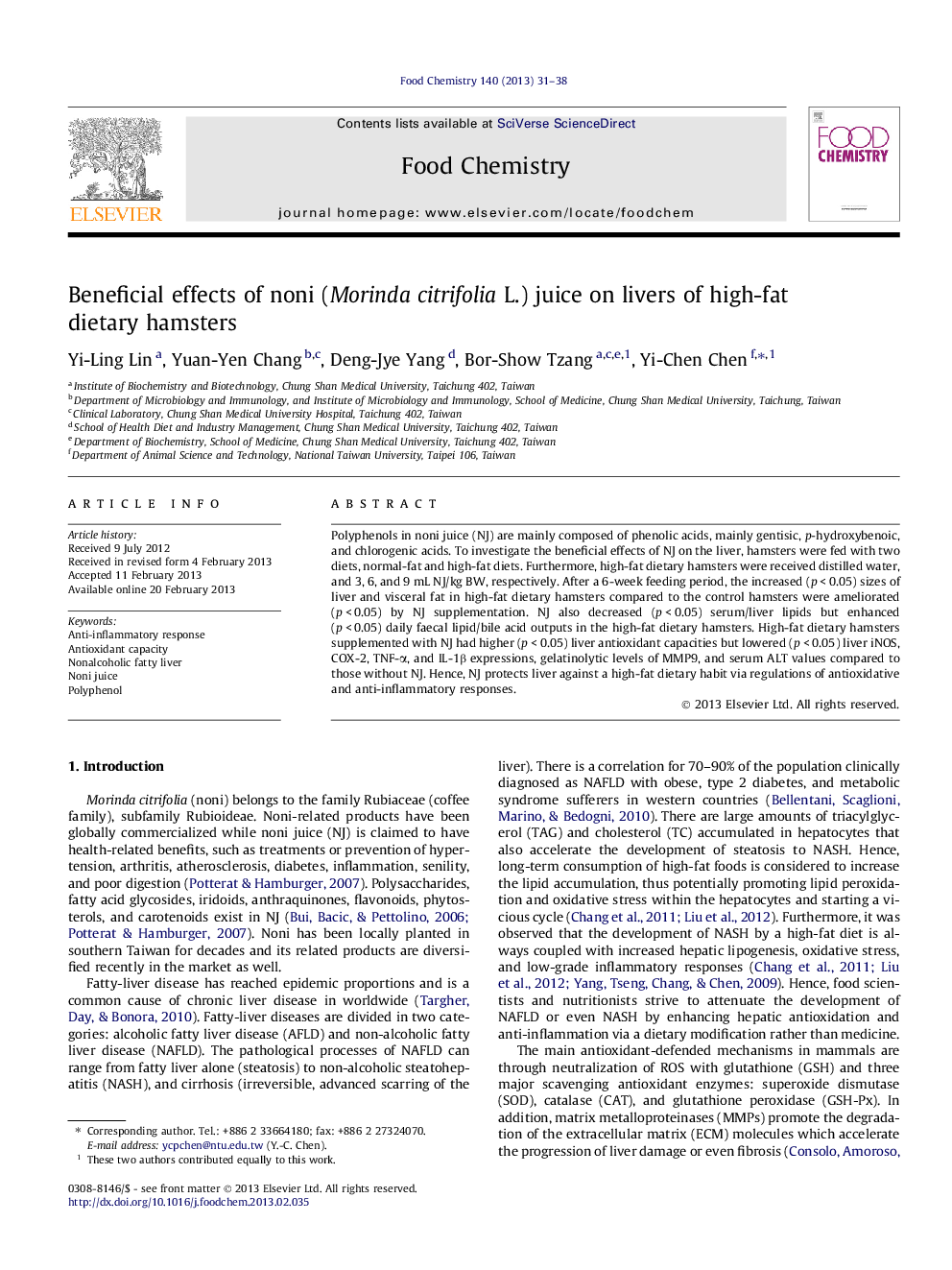| Article ID | Journal | Published Year | Pages | File Type |
|---|---|---|---|---|
| 1184884 | Food Chemistry | 2013 | 8 Pages |
Polyphenols in noni juice (NJ) are mainly composed of phenolic acids, mainly gentisic, p-hydroxybenoic, and chlorogenic acids. To investigate the beneficial effects of NJ on the liver, hamsters were fed with two diets, normal-fat and high-fat diets. Furthermore, high-fat dietary hamsters were received distilled water, and 3, 6, and 9 mL NJ/kg BW, respectively. After a 6-week feeding period, the increased (p < 0.05) sizes of liver and visceral fat in high-fat dietary hamsters compared to the control hamsters were ameliorated (p < 0.05) by NJ supplementation. NJ also decreased (p < 0.05) serum/liver lipids but enhanced (p < 0.05) daily faecal lipid/bile acid outputs in the high-fat dietary hamsters. High-fat dietary hamsters supplemented with NJ had higher (p < 0.05) liver antioxidant capacities but lowered (p < 0.05) liver iNOS, COX-2, TNF-α, and IL-1β expressions, gelatinolytic levels of MMP9, and serum ALT values compared to those without NJ. Hence, NJ protects liver against a high-fat dietary habit via regulations of antioxidative and anti-inflammatory responses.
► Gentisic, p-hydroxybenoic, and chlorogenic acids are major phenolic acid compounds in noni juice (NJ). ► NJ decreases serum and liver lipids of hamsters in a high-fat diet group. ► NJ enhances liver antioxidative capacities in a high-fat diet. ► NJ alleviates liver iNOS, COX-2, TNF-α, and IL-1β expressions and gelatinolytic levels of MMP-9 in a high-fat diet. ► NJ protects liver against oxidative stress and inflammatory responses in a high-fat diet.
